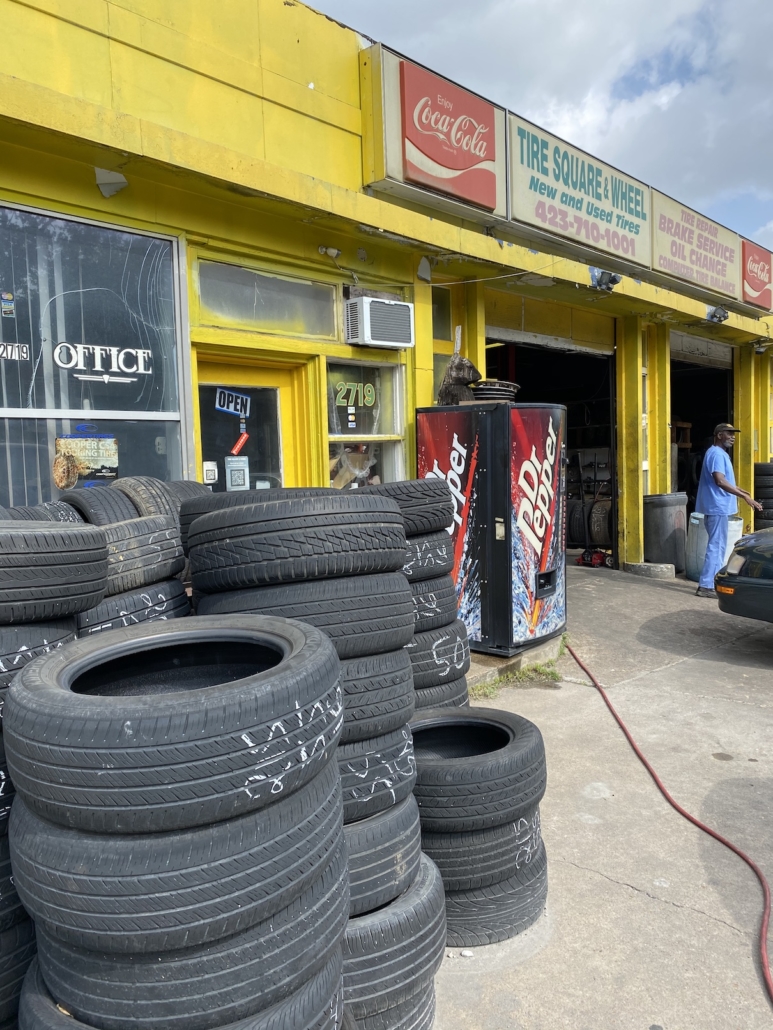Discover Top Tire Tracks Morris IL: Your Ultimate Location for Quality Tire Solutions
Discover Top Tire Tracks Morris IL: Your Ultimate Location for Quality Tire Solutions
Blog Article
The Ecological Benefits of Appropriate Tire Upkeep
Maintaining proper tire treatment is commonly neglected, yet its influence on the atmosphere is extensive. From decreasing gas usage to lowering exhausts outcome, the advantages are far-reaching. Correct tire upkeep not just expands the life-span of tires however likewise decreases garbage dump waste and adds to improved air quality. The interconnectedness of these advantages highlights the essential function that simple upkeep techniques can play in promoting environmental sustainability.
Decreased Gas Intake
Improving tire upkeep techniques can lead to a substantial reduction in fuel usage for cars. According to the United State Division of Power, underinflated tires can lower gas mileage by 0.2% for every 1 psi decline in pressure in all 4 tires.
In enhancement to tire stress, regular tire turnings and positionings also play an important duty in fuel efficiency. Erratically worn tires can increase gas usage as the engine works harder to keep rate and grip. By preserving correct positioning and revolving tires at suggested intervals, motorists can make certain also extend the life and use of their tires, eventually conserving fuel and lowering their carbon impact.
Extended Tire Lifespan
Prolonging the life-span of tires is a vital facet of reliable vehicle maintenance practices that can produce expense savings and environmental advantages in the long run. By properly preserving tires, vehicle drivers can dramatically extend their functionality, reducing the frequency at which brand-new tires need to be produced and old ones dealt with. This not only preserves important resources however also reduces the power and exhausts connected with tire production and disposal processes.
On a regular basis examining tire stress, rotating tires, and guaranteeing appropriate placement are essential action in prolonging tire life-span. Ample tread deepness is essential for ideal traction and safety and security, yet it additionally contributes in for how long tires can be used before needing substitute. In addition, avoiding aggressive driving actions that increase tire wear, such as harsh stopping and doglegs, can additionally enhance tire durability.
Ultimately, increasing the longevity of tires via proactive upkeep not just benefits the environment by decreasing waste and preserving resources but additionally results in cost savings for lorry owners by delaying the need for new tire purchases.
Reduced Emissions Outcome
Reliable tire upkeep techniques add to a decrease in emissions output, straightening with ecological sustainability objectives in the automotive market. Correctly inflated tires, consistently turned and straightened, can boost gas effectiveness, thus reducing the total carbon dioxide discharges from vehicles. When tires are underinflated, the engine needs to work harder to propel the vehicle, causing enhanced fuel intake and higher exhausts. By keeping optimum tire pressure levels, motorists can assist alleviate these negative environmental effects.
Additionally, properly maintained tires likewise improve grip and lower rolling resistance, better improving gas efficiency. This, subsequently, minimizes the amount of exhaust gases released right into the atmosphere. Additionally, making sure tires are correctly blown up and straightened can expand the lifespan of the tires, reducing the frequency of tire replacements and the associated ecological prices of tire manufacturing and disposal.

Lowered Land Fill Waste
Provided the positive impact of correct tire upkeep on lowering discharges output, one more substantial ecological advantage is the capacity for lowered land fill waste. When tires are not kept correctly, they break much faster and require to be changed more frequently. This brings about a higher quantity of utilized tires being gotten rid of in landfills. Nevertheless, by ensuring that tires are correctly pumped up, lined up, well balanced, and rotated regularly, their life-span can be significantly expanded. This suggests that less tires end up in garbage dumps, minimizing the quantity of non-biodegradable waste in these currently overflowing sites.

Improved Air Top Quality
Enhancing air quality with appropriate tire maintenance practices is an essential element of lasting ecological stewardship. When tires are underinflated, they produce much more rolling resistance, leading to boosted gas intake and greater discharges of dangerous toxins such as carbon monoxide gas and nitrogen oxides. Properly inflated tires not just boost gas effectiveness yet additionally minimize the amount of pollutants launched into the air.
In addition, well-kept tires with appropriate tread deepness and placement add to more secure motoring conditions, decreasing the likelihood of crashes that can lead to the release of additional pollutants right into the atmosphere. By expanding the life expectancy of tires with routine upkeep and rotation, less tires are discarded too soon, lowering the ecological impact of tire disposal and manufacturing procedures.
Final Thought
In conclusion, appropriate tire upkeep supplies numerous ecological benefits. It is vital for people to focus on tire upkeep as an easy yet reliable means to shield the environment for future generations.
Correct tire upkeep not just expands the life-span of tires however likewise reduces garbage dump waste and adds to boosted air quality - morris tire. By maintaining proper alignment and rotating tires at suggested periods, vehicle drivers can make certain also use and lengthen the life of their tires, eventually conserving gas and decreasing their carbon impact
By effectively maintaining tires, vehicle drivers can significantly prolong their use, minimizing the frequency at which new tires require to be made and old ones disposed of.Regularly examining tire stress, rotating tires, and ensuring correct alignment morris tire are vital steps in expanding tire lifespan. In addition, ensuring tires are appropriately blown up and aligned can prolong the life expectancy of the tires, minimizing the regularity of tire replacements and the linked environmental prices of tire manufacturing and disposal.
Report this page